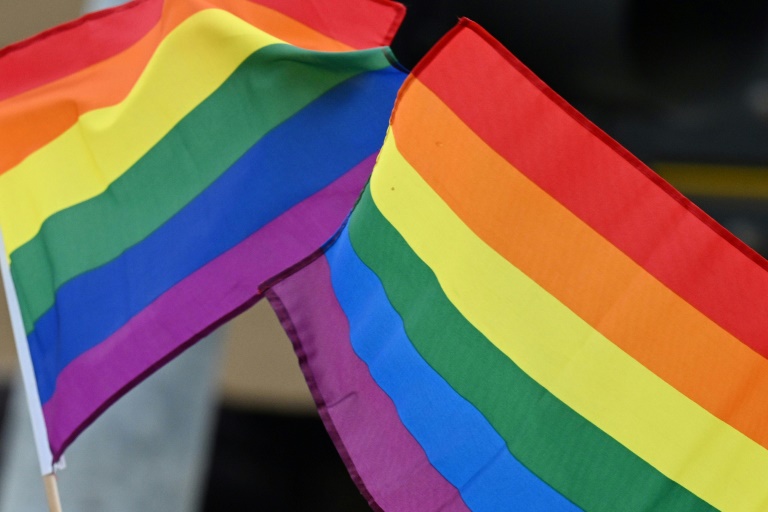Quentin, like others in Burkina Faso, fears a new anti-gay law will spark a “witch hunt” against the already at-risk LGBTQ community, which has been forced even further underground.
Adopted earlier this month by the ruling junta, the criminalisation of same-sex relationships “can change how the population behaves towards us gay people”, the young man told AFP.
“With this law, there will be no more respite,” said Quentin, whose name AFP has changed to protect his identity, as with other people interviewed for this report.
“People will feel invested in a mission: tracking down gay people,” said Quentin, who worries about a “witch hunt” as a result.
Other members of the Burkinabe LGBTQ community voiced similar concerns to AFP over the law, the latest in a slew of anti-gay legislation passed on the African continent.
Critical of Western values, the Burkinabe junta says the legislation — which has not yet come into effect and is part of a new family code — is in line with the country’s customs and traditions.
Even before it has been enacted, many LGBTQ people in Burkina Faso kept their sexual orientation quiet out of fear of prejudice.
“Few people know that I am gay, not even my family, who are putting pressure on me to marry,” said Quentin.
Though Quentin testified that homophobic “stigmatisation and discrimination” is widespread in Burkina Faso, same-sex relationships were not banned in the Sahel nation before the military seized power in a double coup in 2022.
– ‘Out us to the authorities’ –
The law targets “perpetrators of homosexual practices”, who will face punishments ranging from fines to prison sentences of up to five years.
In the three weeks following the junta’s adoption of the text, Alex has already seen attendance at his LGBTQ association fall.
“It’s already been very complicated for us since 2023. But with this law, people can out us to the authorities,” he told AFP.
Outings on social media, backed up by photos of the accused, have already become common currency in Burkina Faso.
“People are also sharing lists of places where we meet up and are handing them over to the authorities,” said Phoenix.
The community “is faced with extreme violence, with people capable of going as far as murder”, Phoenix warned.
Alex agreed, arguing that people “could interpret the law as an invitation to discriminate against or commit acts of violence aimed at LGBTQ individuals”.
To keep helping his peers without putting them in danger, his organisation has adapted its work.
It has begun to organise activities during which its members mingle with other communities to deflect suspicion, while doubling down on delivering support to LGBTQ people at their homes.
This allows access to medical services, such as prevention kits or blood tests for sexually transmitted diseases, without having to make a dangerous journey.
– Thoughts of exile –
Burkina Faso’s criminalisation of same-sex relations is part of junta chief Captain Ibrahim Traore’s pivot away from the West and towards Russia, and his critique of Western values such as LGBTQ rights.
It follows a similar move by its ally, Mali, likewise ruled by a military junta, which adopted a law criminalising same-sex relationships in November.
It also comes as a clutch of governments across Africa — where same-sex relations are illegal in some 30 of the continent’s 54 states — have moved to restrict LGBTQ rights, despite fierce criticism from Western countries and rights groups.
Faced with an uncertain future in Burkina Faso, some LGBTQ people “are thinking of quitting the country”, Alex said.
“We’re all under threat. But if we leave, who will act to help those who remain?” the activist asked.
For Quentin, there is no question of opening himself up to further risk.
“I will continue to lead my life well hidden,” he said.
“I do not plan to put my life in danger by advertising my sexuality in public.”
bur-ldp/sbk/kjm

